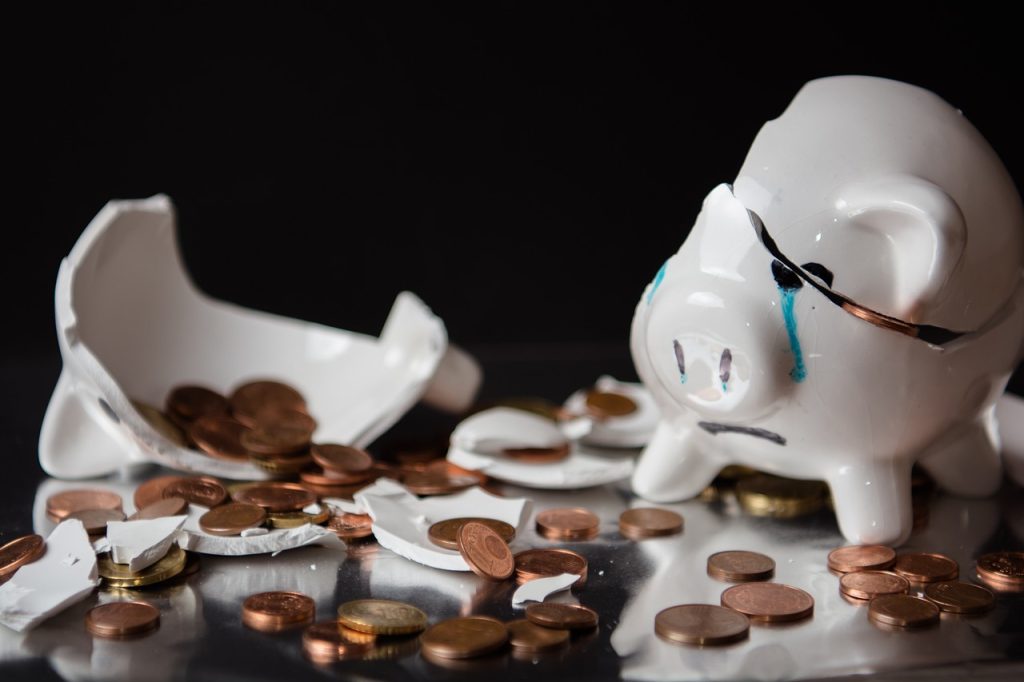US On The Verge Of A Total Financial Meltdown?
Non-traditional banking entities like loan lending companies are beginning to show signs of financial struggle, potentially indicating a future financial meltdown.
This article is more than 2 years old

Financial experts and pundits flip-flopped back and forth for the past two years on whether the United States economy would sink into a recession. A recession would not be a good thing, but it is not as bad as those experts say: our economy is vulnerable and susceptible to a complete economic collapse. This financial meltdown would be catastrophic and plunge our society into complete chaos.
The source of vulnerability that they are speaking of is because of businesses that are referred to as shadow banks or non-banks. After the 2008 financial meltdown, lawmakers went to great lengths to pass legislation that regulated our banking sector in many ways to ensure we never experience the type of collapse due to unfavorable and unrestricted mortgage and credit lending. These regulations helped make our national banks more transparent and conscious of the practices that led us to a historic shuttering of big and small banks across our nation.
These regulations also opened a door for these shadow banks to exist and fill the credit void that banks were restricting. A non-bank exists by providing financial services, including lending that range from pension funds and insurers to mutual and high-risk hedge funds. This financial sector has exploded globally, and they currently have close to $239 trillion of business on their books, equal to about 49% of the entire world’s financial assets.
However, unlike banks that accept cash deposits, these businesses are unregulated and not required to perform any stress testing on their business to ensure that they can survive an economic downturn. Since these businesses would need to convert assets into liquid currency, if either their investors or customers decided to cash out their accounts quickly, the shadow bank would have difficulty converting the assets quickly enough to keep up with the demand. This is where the financial meltdown will occur, as we saw with Silicon Valley Bank’s closure.
Suppose a shadow bank was put into a situation where they had to convert their bond holdings in a short time. The only way to accomplish that would be to start a fire sale of those government-issued bonds. This is where the crossover begins to cause unprecedented stress on the national banking system they would not be prepared to handle.
During this asset conversion, they would sell those assets at less than their actual value. This would devalue all government bonds across the entire financial sector. Our national banks rely on these bonds for stability around all the lending they do in their day-to-day business.
If the value of these bonds were to plummet, so would the ability of our national banks to meet their financial obligations if customers started demanding to withdraw their liquid assets. These events in succession lead us to a complete financial meltdown and collapse of our nation’s economy. In England last year they saw this exact scenario begin to play out right before their eyes.
According to CNN Business, “This is what happened last fall when UK pension funds using the so-called liability-driven investment approach had to sell UK government bonds, which were crashing on the back of then-Prime Minister Liz Truss’s disastrous budget plans. That created “a vicious spiral” in the country’s bond market, in the words of the Bank of England, nearly toppling the UK financial system.”
If we don’t start taking a serious look at these shadow banks’ operations and start legislating regulations to ensure their financial health and survivability in the face of economic stressors. We are going to experience a financial meltdown like never seen and the results will be historic and unprecedented. As of right now, experts are mulling the possibility but for an industry that controls almost half of the world’s financial assets while being unregulated, it does not take a genius to see the writing on the wall.





